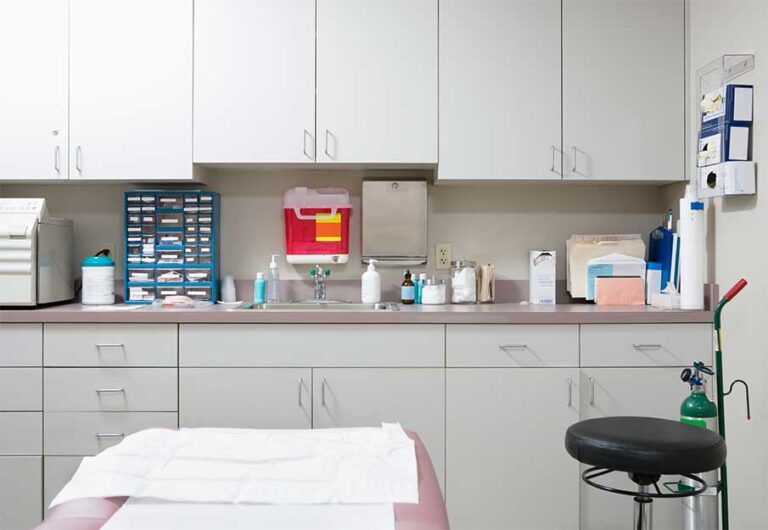Autoimmune Diseases and STDs: Are You at Greater Risk?
Autoimmune diseases and sexually transmitted diseases (STDs) are both conditions that can affect anyone, but did you know that having one may increase your risk for the other? Understanding the relationship between autoimmune diseases and STDs is crucial for anyone dealing with these health issues. Whether you’ve been diagnosed with an autoimmune disease or are concerned about your sexual health, knowing how these two conditions interact can help you take the right steps toward protecting yourself.
At Hope Across The Globe, we are committed to providing people with the necessary resources to make informed decisions about their health. In this blog, we will explore how autoimmune diseases may influence your risk of contracting STDs, and vice versa, while also offering guidance on STD testing in Jacksonville, FL, for those looking to stay on top of their health.
What Are Autoimmune Diseases?
Autoimmune diseases occur when the body’s immune system mistakenly attacks its cells and tissues. This can happen in nearly any part of the body, and the effects can range from mild to severe. Conditions like lupus, rheumatoid arthritis, multiple sclerosis, and type 1 diabetes are all autoimmune diseases that fall under this category.
Typically, the immune system works to defend the body against harmful invaders like bacteria, viruses, and other pathogens. However, in autoimmune diseases, the immune system becomes overactive or misdirected, causing it to attack healthy cells instead.
Common symptoms of autoimmune diseases can include chronic pain, fatigue, swelling, skin problems, digestive issues, and neurological disturbances. These diseases can be lifelong and may require ongoing treatment to manage symptoms.
How Autoimmune Diseases Affect the Immune System
The immune system plays a central role in defending the body against infections, including those caused by sexually transmitted diseases. When the immune system is compromised or impaired due to an autoimmune disease, it can become less effective at fighting off infections. As a result, individuals with autoimmune diseases are often at a greater risk of contracting infections, including STDs. The weakened immune response can make it easier for viruses and bacteria to take hold in the body, leading to infections that might otherwise be kept in check.
Also Learn About: The Role of Meditation and Stress Management in STD Management
The Connection Between Autoimmune Diseases and STDs
The link between autoimmune diseases and STDs is not always obvious, but it’s essential to understand how these two conditions can affect each other. Autoimmune diseases can increase a person’s susceptibility to infections, including STDs, and certain STDs can worsen the symptoms or progression of autoimmune diseases.
Weakened Immunity: A Greater Risk for STDs
As mentioned, autoimmune diseases can impair the immune system, making it less effective at defending the body against infections. This weakened immunity can make individuals with autoimmune diseases more susceptible to catching STDs, even with safe sexual practices. The immune system’s inability to adequately respond to these infections may lead to more severe consequences, including prolonged infections and complications that can spread to other parts of the body.
Sexually Transmitted Diseases and Autoimmune Conditions
Some sexually transmitted diseases can also make autoimmune conditions worse. For example, HIV (human immunodeficiency virus) is a well-known STD that directly targets and weakens the immune system. Individuals with autoimmune diseases who contract HIV are at an increased risk of complications because their already compromised immune systems may struggle even more to fight off the virus. The presence of HIV can cause autoimmune diseases to progress more rapidly, leading to greater health challenges.
Similarly, herpes simplex virus (HSV), which causes genital herpes, can be more difficult to manage for people with autoimmune conditions. The virus can trigger flare-ups of symptoms in those already battling an autoimmune disease, leading to more frequent outbreaks and more intense symptoms.
Are You at Greater Risk for STDs with an Autoimmune Disease?
If you have an autoimmune disease, it’s important to take proactive measures to protect your sexual health. While having an autoimmune disease doesn’t guarantee you will contract an STD, the risk factors are higher due to the immune system’s inability to fight infections as effectively.
Specific Autoimmune Diseases and Their Impact on STD Risk
Some autoimmune diseases have a more direct impact on STD risk than others. For instance, individuals with lupus often have a higher likelihood of developing infections, including STDs, because their immune systems are less able to respond to pathogens. Similarly, people with rheumatoid arthritis, especially those on immunosuppressive medications, can experience a decrease in their ability to fight off infections.
If you’re living with an autoimmune disease, it’s important to understand your specific risks and how they relate to the type of disease you have. Talk to your doctor about the potential risks of contracting STDs and ask about the best prevention strategies for your situation.
Also Learn About: The Future of STD Vaccines: What’s on the Horizon?
A Key Preventive Measure
One of the most important steps you can take to protect your sexual health is regular testing. STD testing in Jacksonville, FL, can help you stay on top of your health and detect any infections early, so you can begin treatment as soon as possible. If you have an autoimmune disease, getting regular STD screenings can help you manage both conditions more effectively and reduce the risk of complications.
Why Testing Is Essential
Regular testing is critical for everyone, but it’s especially important for individuals with autoimmune diseases. Because the immune system is already compromised, infections can spread more quickly and cause more harm. Early detection through testing can help prevent the spread of STDs and reduce the impact they have on your overall health.
Types of Tests
Testing involves a variety of tests depending on the specific type of infection you may be concerned about. Some common STD tests include:
- Chlamydia and Gonorrhea Testing: These bacterial infections are often asymptomatic but can cause severe reproductive health problems if left untreated.
- HIV Testing: People with autoimmune diseases who are at a higher risk for HIV may benefit from regular HIV screenings to ensure early diagnosis and treatment.
- Syphilis Testing: Syphilis can cause long-term complications if not treated, and early testing can prevent serious issues.
- Herpes Testing: Genital herpes is a viral infection that can be more difficult to manage for people with autoimmune diseases, so it’s important to know your status.
In Jacksonville, FL, Hope Across The Globe offers reliable and confidential STD testing services that can help you stay ahead of potential health concerns. Regular testing is an essential part of maintaining good health, especially when managing autoimmune diseases.
How to Prevent STDs and Manage Autoimmune Diseases
Prevention is key when it comes to both STDs and autoimmune diseases. Taking proactive steps to protect your sexual health and managing your autoimmune condition effectively can help you reduce the risk of complications.
Prevention Tips for STDs
While having an autoimmune disease may increase your risk for STDs, practicing safe sex can help reduce this risk. Here are a few prevention tips:
- Use Protection: Condoms are one of the most effective ways to reduce the transmission of STDs. Make sure to use them consistently and correctly with every sexual encounter.
- Get Vaccinated: Vaccines are available for certain STDs, such as HPV (human papillomavirus) and hepatitis B. These vaccines can protect you from infections that could complicate your autoimmune condition.
- Limit Sexual Partners: Reducing the number of sexual partners can decrease your risk of encountering STDs. Having fewer partners lowers the likelihood of coming into contact with an infected person.
Managing Autoimmune Diseases
Properly managing your autoimmune disease is also crucial in reducing your risk of STDs. Work closely with your healthcare provider to ensure your condition is under control and your immune system is functioning as well as possible.
If you are taking medications that suppress your immune system, be sure to discuss the potential risks of infection with your doctor and follow their advice on prevention and treatment. Additionally, maintaining a healthy lifestyle with regular exercise, a balanced diet, and adequate sleep can help strengthen your immune system.
Conclusion
Autoimmune diseases and STDs are both serious health concerns that require ongoing attention and care. While having an autoimmune disease may increase your risk of contracting STDs, understanding this connection can help you take the necessary steps to protect your health. Regular STD testing, safe sex practices, and proper management of autoimmune conditions are all essential components of staying healthy.
If you’re in Jacksonville, FL, Hope Across The Globe is here to support you with comprehensive STD testing and resources to help you manage your health. Stay informed, get tested, and take control of your health today.
Related Tag: HIV testing






